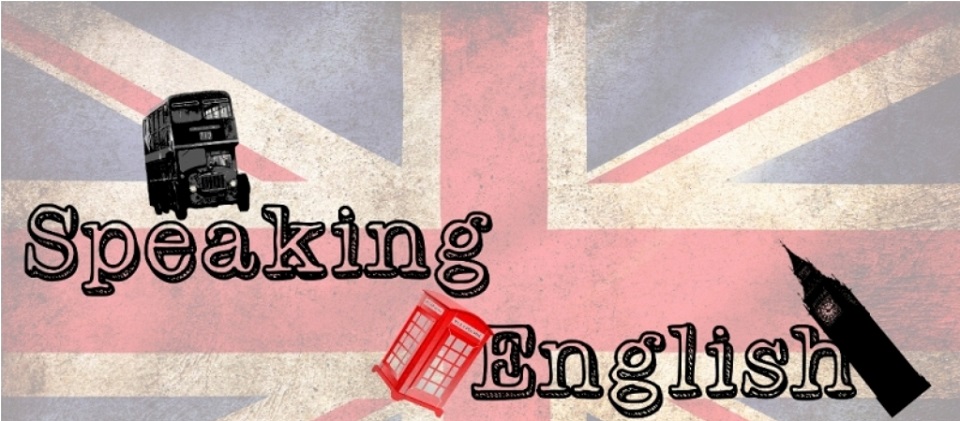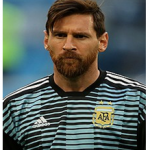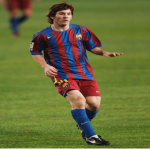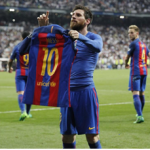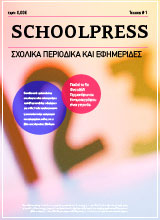By Nick Dafogiannis
Lionel Andrés Messi born 24 June 1987 is an Argentine professional footballer who plays as a forward and captains both Spanish club Barcelona and the Argentina national team.
Personal Information:
- Full name: Lionel Andrés Messi
- Date of birth: 24 June 1987
- Place of birth: Rosario, Argentina
- Height: 1.70 m
- Playing position: Forward
Early life:
Messi was born on 24 June 1987 in Rosario, the third of four children of Jorge Messi, a steel factory manager, and his wife Celia Cuccittini, who worked in a magnet manufacturing workshop. On his father’s side, he is of Italian and Spanish descent, the great-grandson of immigrants from the northcentral Adriatic Marche region of Italy and Catalonia, and on his mother’s side, he has primarily Italian ancestry. Growing up in a tight-knit, football-loving family, «Leo» developed a passion for the sport from an early age, playing constantly with his older brothers .At the age of four he joined local club Grandoli, where he was coached by his father, though his earliest influence as a player came from his maternal grandmother, Celia, who accompanied him to training and matches. He was greatly affected by her death, shortly before his eleventh birthday; since then, as a devout Catholic, he has celebrated his goals by looking up and pointing to the sky in tribute to his grandmother.
His first step and his health problem:
A lifelong supporter of Newell’s Old Boys, Messi joined the Rosario club when he was six years old. During the six years he played for Newell’s, he scored almost 500 goals as a member of «The Machine
- of ’87″, the near-unbeatable youth side named for the year of their birth, and regularly entertained crowds by performing ball tricks during half-time of the first team’s home games. However, his future as a professional player was threatened when, at age 10, he was diagnosed with a growth hormone deficiency. As his father’s health insurance covered only two years of growth hormone treatment, which cost at least $1,000 per month, Newell’s agreed to contribute, but later reneged on their promise. He was scouted by Buenos Aires club River Plate, whose playmaker, Pablo Aimar, he idolised, but they were also unable to pay for his treatment due to Argentina’s economic collapse.
In Barcelona:
As the Messi family had relatives in Catalonia, they sought to arrange a trial with Barcelona in September 2000. First team director Charly Rexach immediately wanted to sign him, but the board of directors hesitated; at the time it was highly unusual for European clubs to sign foreign players of such a young age. On 14 December, an ultimatum was issued for Barcelona to prove their commitment, and Rexach, with no other paper at hand, offered a contract on a paper napkin. In February 2001, the family relocated to Barcelona, where they moved into an apartment near the club’s stadium, Camp Nou. During his first year in Spain, Messi rarely played with the Infantiles due to a transfer conflict with Newell’s; as a foreigner, he could only be fielded in friendlies and the Catalan league. Without football, he struggled to integrate into the team; already reserved by nature, he was so quiet that his teammates initially believed he was mute. At home, he suffered from homesickness after his mother moved back to Rosario with his brothers and little sister, María Sol, while he stayed in Barcelona with his father.
After a year at Barcelona’s youth academy, La Masia, Messi was finally enrolled in the Royal Spanish Football Federation in February 2002. Now playing in all competitions, he befriended his teammates, among whom were Cesc Fàbregas and Gerard Piqué. After completing his growth hormone treatment aged 14, Messi became an integral part of the «Baby Dream Team», Barcelona’s greatest-ever youth side. During his first full season (2002–03), he was top scorer with 36 goals in 30 games for the Cadetes A, who won an unprecedented treble of the league and both the Spanish and Catalan cups. The Copa Catalunya final, a 4–1 victory over Espanyol, became known in club lore as the partido de la máscara, the final of the mask. A week after suffering a broken cheekbone during a league match, Messi was allowed to start the game on the condition that he wear a plastic protector; soon hindered by the mask, he took it off and scored two goals in 10 minutes before his substitution.
Debut with the first team:
At 16 years, four months, and 23 days old, Messi made his first team debut when he came on in the 75th minute during a friendly against José Mourinho’s Porto on 16 November 2003. His performance, creating two chances and a shot on goal, impressed the technical staff, and he subsequently began training daily with the club’s reserve side, Barcelona B, as well as weekly with the first team. After his first training session with the senior squad, Barça’s new star player, Ronaldinho, told his teammates that he believed the 16-year-old would become an even better player than himself.] Ronaldinho soon befriended Messi, whom he called «little brother», which greatly eased his transition into the first team.
To gain further match experience, Messi joined Barcelona C in addition to the Juveniles A, playing his first game for the third team on 29 November. He helped save them from the relegation zone of the Tercera División, scoring five goals in ten games, including a hat-trick in eight minutes during a Copa del Rey match while man-marked by Sevilla“s Sergio Ramos. His progress was reflected in his first professional contract, signed on 4 February 2004, which lasted until 2012 and contained an initial buyout clause of €30 million. A month later, on 6 March, he made his debut for Barcelona B in the Segunda División B, and his buyout clause automatically increased to €80 million. He played five games with the B team that season but did not score. Physically he was weaker than his opponents, who were often much older and taller, and in training he worked on increasing his muscle mass and overall strength in order to be able to shake off defenders. Towards the end of the season, he returned to both youth teams, helping the Juveniles B win the league. He finished the campaign having scored for four of his five teams with a total of 36 goals in all official competitions.
Barcelona team:
After 2004 Lionel plays a key role in Barcelona and in Argentina national team and his performance is unreal . Every year he scores over 30 goals and is one of the most difficult opponents for the defenders . His career is huge amd many consider him the best player of all time . He has broken several records and has won many trophies in the 15 years he has been playing . His biggest competitor is Cristiano Ronaldo although he says they are good friends.
Records:
- Ballon d’Or/FIFA Ballon d’Or: 2009, 2010, 2011, 2012, 2015, 2019
- FIFA World Cup Golden Ball: 2014
- FIFA World Player of the Year: 2009
- The Best FIFA Men’s Player: 2019
- European Golden Shoe: 2009–10, 2011–12, 2012–13, 2016–17, 2017–18, 2018–19
- Copa América Golden Ball: 2015
- UEFA Men’s Player of the Year Award: 2011, 2015
- UEFA Club Footballer of the Year: 2009
- UEFA Club Forward of the Year: 2009, 2019
- La Liga Best Player: 2008–09, 2009–10, 2010–11, 2011–12, 2012–13, 2014–15
- La Liga Best Forward: 2008–09, 2009–10, 2010–11, 2011–12, 2012–13, 2014–15, 2015–16
- Pichichi Trophy: 2009–10, 2011–12, 2012–13, 2016–17, 2017–18, 2018–19, 2019–20
- FIFA Club World Cup Golden Ball: 2009, 2011
- FIFA Club World Cup Silver Ball: 2015
- FIFA Club World Cup Final Most Valuable Player: 2009, 2011
- FIFA World Youth Championship Golden Ball: 2005
- FIFA World Youth Championship Golden Shoe: 2005
- IFFHS World’s Best Playmaker: 2015, 2016, 2017, 2019
- Olimpia de Plata (Argentine Footballer of the Year): 2005, 2007, 2008, 2009, 2010, 2011, 2012, 2013, 2015, 2016, 2017, 2019
- Copa América Best Young Player: 2007
- FIFPro Young World Player of the Year: 2006, 2007, 2008
- Golden Boy (Young European Footballer of the Year): 2005
- FIFA FIFPro World11: 2007, 2008, 2009, 2010, 2011, 2012, 2013, 2014, 2015, 2016, 2017, 2018, 2019, 2020
- UEFA Team of the Year: 2008, 2009, 2010, 2011, 2012, 2014, 2015, 2016, 2017, 2018, 2019
- UEFA Ultimate Team of the Year
- FIFA World Cup Dream Team: 2014
- Copa América Dream Team: 2007, 2011, 2015, 2016
- Argentine Football Assn. Team of All Time
- Laureus World Sportsman of the Year: 2020
- L’Équipe Champion of Champions: 2011
- World Soccer Greatest XI of All Time: 2013
- Ballon d’Or Dream Team: 2020
- Champion for Peace and Sport: 2020
Troρhies:
- La Liga: 2004–05, 2005–06, 2008–09, 2009–10, 2010–11, 2012–13, 2014–15, 2015–16, 2017–18, 2018–19
- Copa del Rey: 2008–09, 2011–12, 2014–15, 2015–16, 2016–17, 2017–18
- Supercopa de España: 2006, 2009, 2010, 2011, 2013, 2016, 2018
- UEFA Champions League: 2005–06, 2008–09, 2010–11, 2014–15
- UEFA Super Cup: 2009, 2011, 2015
- FIFA Club World Cup: 2009, 2011, 2015
